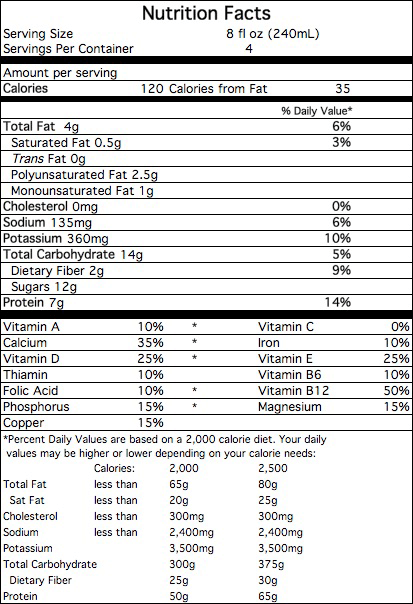People often ask me about the benefits of vegan diets and if I’ve noticed any changes in how I feel after turning vegan several years ago. My answer is always the same, “my energy level increased significantly.” I tell them examples of times when after working all day, I’d come home, cut the grass, trim hedges, and clean out the garage. These bursts of energy, although not every day, happened quite often.
I based my explanation on a theory I had. Since meat was no longer in my diet, I had to eat larger portions of nutrient-dense foods to fill me up. I decided to research this theory and review previous studies to support or disprove my theory.
My research was on the benefits of vegan diets. However, there are a lot of variations in plant-based diets, which can become confusing. Therefore, I’ve included a chart below which defines the various types of diets. For more information, see Types of Diets and their Definitions.
Dietary Types and Their Classification
| Diet | Definition |
| Vegan | Excludes all animal products |
| WFPB (whole-foods plant-based) | Excludes heavily processed foods while focusing on foods in their most natural form |
| Raw vegan | Excludes all animal products, along with products that cannot be consumed uncooked or raw |
| Lacto-ovo-vegetarian | Excludes all forms of meat but permits other animal products (dairy, eggs, honey, etc.) |
| Lacto-vegetarian | It excludes all forms of meat and eggs but permits dairy products, honey, etc. |
| Ovo-vegetarian | It excludes all forms of meat and dairy products but permits eggs, honey, etc. |
| Pescatarian | It excludes meat but permits fish, dairy products, eggs, honey, etc. |
| Flexitarian | Switches between vegetarian and meat-based diets; consists mainly of a vegetarian diet, with a minimal intake of meat |
| Omnivore | It does not exclude any animal products |
Why should you become a vegan?
The first point is that no one switches to a vegan diet because it will make them bigger, faster, and stronger. Or that it will double their endurance and stamina when working out. People become vegans for different reasons. Studies have shown the many benefits of vegan diets. For example, they lower the risks of heart disease, diabetes, and cancer. For more information about the benefits of vegan diets, see Health Benefits of a Vegan to review some of the primary health-related reasons people become vegans. Other reasons focus on animal rights and the environment.
This article attempts to answer the question: Can you attain high-performance endurance levels, whether you’re an athlete or someone who regularly exercises, while on a vegan diet.
I know some vegans who are anything but fit or in shape. So, changing to a vegan diet isn’t a magical course of action. You have to approach it with planning and discipline to maximize the benefits of a vegan diet.
Does what we eat matter?
There’s no denying that eating has an impact on one’s health. To nourish the body and protect it against inflammation and age-related stress, we must consume high-quality foods. Inadequate nutrient intake in the diet can cause everything from poor energy to chronic disease and significant health problems. It is simpler to live a healthy, balanced lifestyle when you know the different nutrients in foods, their impact on your body, and how to include them in your diet.
Cardiovascular diseases (CVD) are the primary cause of death in men and women today. In today’s environment, a considerable demand for CVD prevention through lifestyle changes and diet is rising.
This section reviews a study performed by the International Journal of Obesity Supplements. The study connected CVD to poor nutrition, excessive alcohol intake, stress, smoking, and a lack of physical activity. The primary goal is to avoid and minimize CVD risk factors like lipid and glycemic abnormalities, high blood pressure, and obesity. Here are examples of various diets developed to maximize the approach to this issue:
- Mediterranean diet
- Dietary Approaches to Stop Hypertension (DASH)
- Vegetarian diet
- Ketogenic diet
- Japanese diet
The study found that it is best to consume more vegetables, fruits, and whole grains, depending on your diet. Conversely, red meat, sweets, sugar-sweetened beverages, and processed foods high in sugar, salt, fat, or dietary fiber are discouraged or recommended to be avoided.
These studies evaluated and compared the unique characteristics of these well-known dietary patterns. As a result, found the critical factors that increase CVD risk and the potential application and benefits of nutritional protocols to improve dietary and lifestyle habits for CVD prevention.
These studies looked at and compared the differences between these well-known eating patterns. They found the most important factor that raises CVD risk is the regular consumption of the unhealthy foods mentioned above. In contrast, the studies confirmed the benefits of practicing healthy eating to improve diet and lifestyle to prevent CVD.
Micronutrients, macronutrients, and why they are important
A vegan diet lacking macronutrients (protein, n-3) and micronutrients (vitamin B12, vitamin D, iron, zinc, calcium, iodine) may cause nutritional deficiencies. This is particularly concerning if little attention is devoted to replenishing nutrients lost due to the absence of animal products.
“We need macronutrients to help with energy, and we need micronutrients to help our body be healthy and digest those macronutrients.”
Doctor Donald Hensrud, the Mayo Clinic
Your body needs two nutrients to stimulate the body’s growth and development: macronutrients and micronutrients.
Your body uses macronutrients (carbohydrates, protein, and fat) in larger proportions, thereby giving you energy in the form of calories.
Micronutrients, often known as vitamins and minerals, are the nutrients your body needs in smaller amounts.
Since vegan diets are deficient in some essential micro and macronutrients, planning and awareness are vital to getting the most out of your diet. Fortunately, the food industry assists in this area and provides another benefit of vegan diets. Many plant-based foods on the market are fortified with vitamins, minerals, and other essential micronutrients.
Here is an example of a nutrition label for soy milk fortified with nutrients like calcium and vitamin B12. Before fortified foods, you had to consume meat and fish to get your B12 requirements.

With several fortified foods like this on the market, you will have no difficulties getting all the nutrients your body needs. The other option is to take a vitamin supplement to ensure you are always at the recommended daily requirements.
Vegan Diet for Athletes and Exercising
All the research I reviewed had the same concern about the vegan diet and physical performance. That vegan diets are prone to macro and micronutrient deficiencies. But we’ve addressed that concern already by using a bit of planning and awareness.
Now let’s consider the various health benefits of a vegan diet to athletes and the concept that it might provide advantages for (young, competitive) athletes and active fitness buffs.
One study was performed by a professional with two decades of experience working with athletes of all performance levels. They received advice on switching to and maintaining a healthy vegan diet. His review is the first to offer a unique perspective that cuts across the three disciplines of diet, sports, and health.
This review is also the first to compare scientific results with hearsay to support a healthier approach to sports nutrition counseling for athletes and active exercisers.
The report intends to nudge coaches, dietitians, families, and specialized scientists in sports, nutrition, medicine, and health, to be more open-minded.
Additionally, not to ignore an athlete’s expressed desire to switch to a healthier dietary pattern, which includes considering the benefits of vegan diets.
Comparing endurance between vegans and non-vegans

Study 1:
The ability of our lungs to function, or our cardiorespiratory response, is one factor in our endurance. In 2014, Leischik and Spelsberg conducted a study on a vegan ultra-athlete and ten non-vegan Ironman triathletes to examine the benefits of vegan diets.
They tested both athletes’ respiratory ability using two instruments to measure heart and lung capacity. The ultra-athlete who was a vegan had a higher oxygen intake at the respiratory compensation point.
The respiratory compensation point is the maximum amount of exertion that can be assumed. An increase in oxygen intake allows for more oxygen by the working muscles at this maximal point, improving endurance performance.
Study 2:
The functions of the cardiovascular system are another vital aspect of endurance performance. Scientists researched the effects of vegetarian diets on endurance, performance, and some metabolic factors.
They compared the diets of 21 subjects who had previously consumed vegetarian diets and 21 subjects who consumed a standard western diet. The results showed that vegetarians had lower systolic and diastolic blood pressures associated with sodium, fiber, and potassium.
Vegans have a higher intake of these nutrients due to their diet. At the end of the experiment, the vegetarian diet reduced cardiometabolic risk, specifically concerning lower overall blood pressure.
Summary:
Our endurance, performance, and overall health are all influenced by various things. Several studies have looked at a wide range of activities and the impact that a vegan/vegetarian diet might have on them.
Depending on the activity, vegetarian and vegan diets may have different effects on athletic performance. If you’re a long-distance runner or biker, there appears to be a minimal downside to eating a nutritionally balanced vegetarian diet. Therefore, it might be advantageous, as presented in the studies in this article.
Vegan diets are higher in carbs, which help muscles store more glycogen for extended periods. Nonetheless, vegan endurance athletes require adequate plant-based protein compared to more sedentary persons.
In conclusion, vegan athletes and those who exercise regularly will have no problem performing at peak levels. Planning meal selections and supplements properly to ensure your body gets the proper amounts of macro and micronutrients is essential to get the positive benefits of vegan diets.

